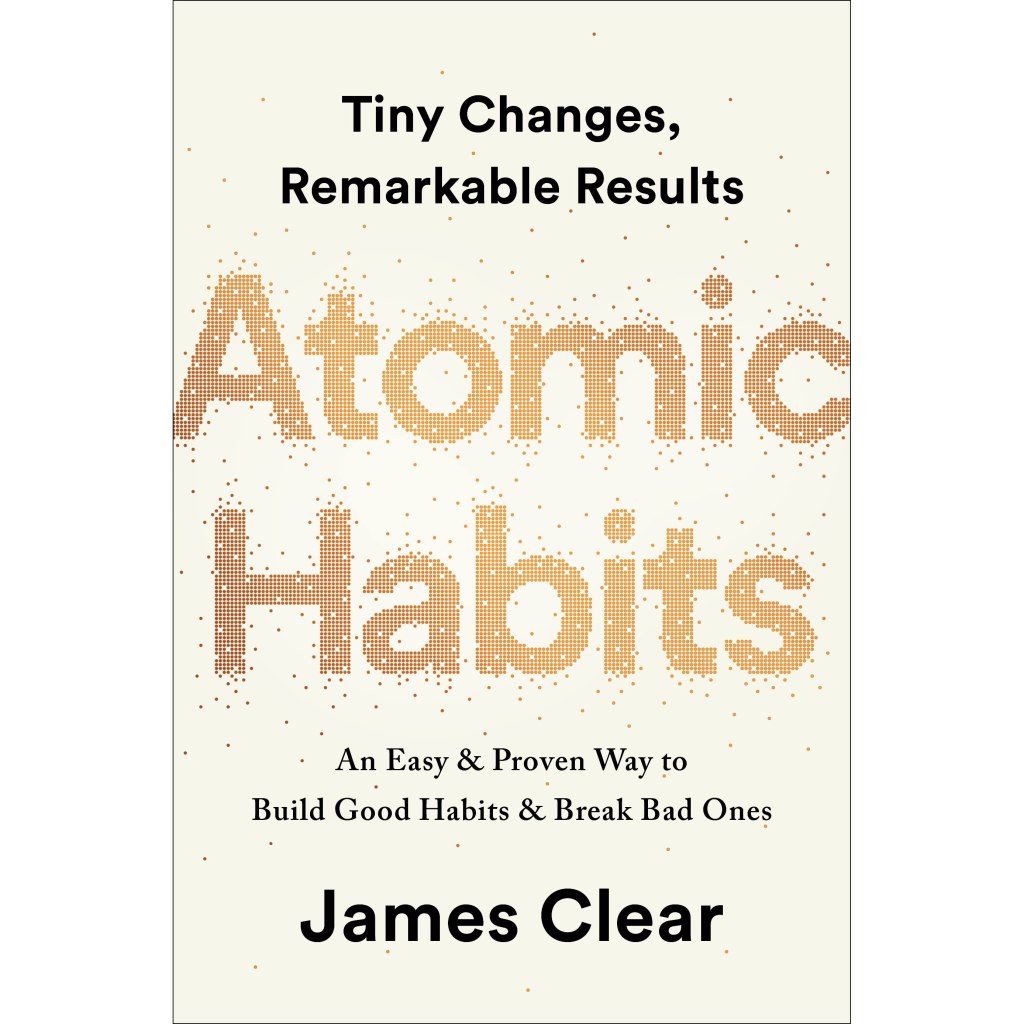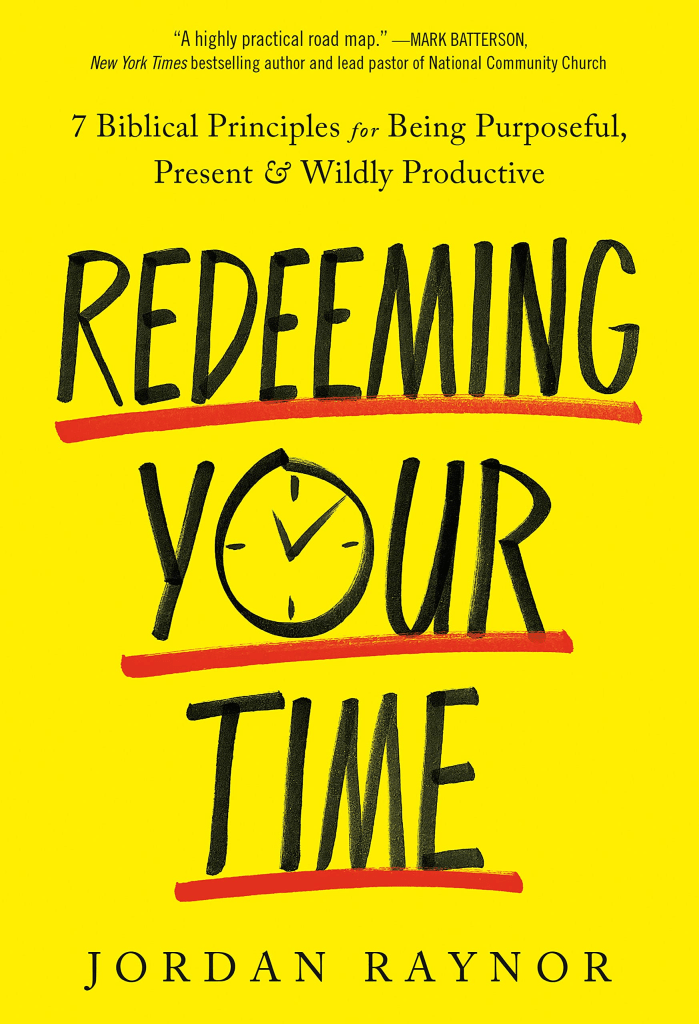At the beginning of 2022, I decided to work on revamping my habits and daily routine. My schedule was inefficient. I had tons of mental clutter that swirled in my head and kept me feeling overwhelmed, and yet I was accomplishing nothing. So I gave myself a daily habit reboot!
While I walked our new puppy, I listened to these 3 books and slowly learned new tactics for how to tackle all those things on my To-Do List while also enjoying more time for myself and the things I wanted to do. I have not yet succeeded in implementing all the numerous strategies in these books, but I have made tremendous progress. I am healthier, happier, and less stressed.
Atomic Habits: Tiny Changes, Remarkable Results by James Clear

I highly recommend this book. It is packed with very specific suggestions of how to develop better daily habits. I listened to the audiobook but then also purchased the hardback so I could go back and revisit certain concepts more easily. This book helped me think of ways to add in those tasks I wanted to be doing more faithfully but just couldn’t seem to accomplish regularly–drinking more water, exercising, Bible study…
The book describes 4 main methods of developing any habit: make it obvious, make it attractive, make it easy, and make it satisfying. Then it gives examples of how to do this with different types of habits. One of my favorite aspects of this book was that you could immediately start implementing the strategies from the very first chapter. I would read a little and start making changes in my life. Then read a little more and make more changes. It was simple, specific, and practical. It was packed with so many ideas I feel like I could read it 3-4 times before truly getting everything out of it. Atomic Habits is a great book to kick off your journey to better daily routines.
Redeeming Your Time: 7 Biblical Principles for Being Purposeful, Present & Wildly Productive by Jordan Raynor

After developing a few new habits, including a more specific morning and evening routine, I decided to dive deeper into my quest for a more simplified and efficient lifestyle. This book was the 2nd book I read. A Christian-based book, it starts and ends by reminding the reader that ultimately our peace will be found in Christ, not a perfect schedule or routine.
Like the previous one, this book is full of so many specific ideas that I found it helpful to both listen to it and read through a hardback copy. Though it is geared toward people who work outside the home or have a more regular job at home, all of the suggestions can easily be adapted to other situations, such as a homeschool mom. While I read this book, I started taking control of the part of my life that was not always routine–the shifting demands of kids, church, service organizations, etc.
The main focus of this book is managing your To-Do list and all that mental clutter that makes your brain hurt. It provides a number of practices that will help you prioritize what’s important and spend less time on meaningless, less-fulfilling tasks.
how i put it into practice
- Chose a tracking system for all those ideas and tasks in my head–Google Keep. I started making a variety of lists for each area in my life as well as some mental notes about ideas for the future, things I wanted to research or learn, and anything else that was in my brain. This keeps me from constantly feeling like I’m forgetting something.
- Started parenting my phone. I used the Focus feature of my iPhone to quiet all those notifications that would wake me at night. I set a bedtime and wake time on my phone and turned off certain notifications that were a constant distraction. Now I’m sleeping so much better.
- Developed a time for focused work. I looked at my schedule and figured out when my brain is most ready for deep thinking and when I’m least interrupted by others. For me, it was after my coffee and devotional time but before my kids were out of bed, from about 7:30-8:30am. Now, I either sit at my kitchen table working on my laptop (writing, planning lessons, or researching) or I organize a pile of paper clutter or drawer. I make a point to do things during this time that are mentally taxing and require concentration because this is often the only opportunity during my day when I am not frequently distracted and interrupted. Setting aside this time has made me much more efficient in these tasks.
Eat That Frog: 21 Ways to Stop Procrastinating and Get More Done in Less Time by Brian Tracy

This final book was a great way to review the main concepts from the other books and provide a little extra motivation to make those desired changes immediately. It is very short and direct; a quick read to round out your daily habit reboot. Though this book is very much written for the workplace environment, all its concepts also apply to your personal life as well.
In addition, I feel it important to point out that it is not a Christian book. Occasionally it suggests prioritizing work over relationships and other similar ideas. However, you can easily just “agree to disagree” with these suggestions and apply the main concepts in more Christ-like ways. Its lack of Christian values does not discount its overall usefulness.
This book gave me some specific tools to start tackling those difficult or loathsome tasks instead of continually pushing them to the bottom of my To-Do List.
I’m sure there are other great books or resources out there for time management and habit training, but I can vouch for these 3–they all provided very specific, easily applicable suggestions for how to make simple changes that provide big rewards. Here are a few of the changes I’ve made personally because of these books:
- Health – I’m walking more, increasing my step count, drinking more water, and cooking healthier meals more often.
- Spiritual – I’m spending more time in Bible study and prayer and am more faithful in beginning my day with a devotional time.
- Personal – I’m taking better care of myself, having more quiet time (which this introvert needs), and enjoying more time for doing what I want, like reading books. I’m even dressing better (getting out of my pajamas even when I’m home all day) and getting more sleep.
- Work – I’ve found a rhythm for how to get focused work done during the time of day when I’m at my best (morning), so I’m accomplishing much more in less time.
Time is one of our most valuable possessions. Use it wisely. Remind ourselves often that things that matter most should not be left to the mercy of things that matter the least.
O. Leslie Stone
I pray you develop habits and manage your time in such a way that you are able to focus on those things that matter most.
